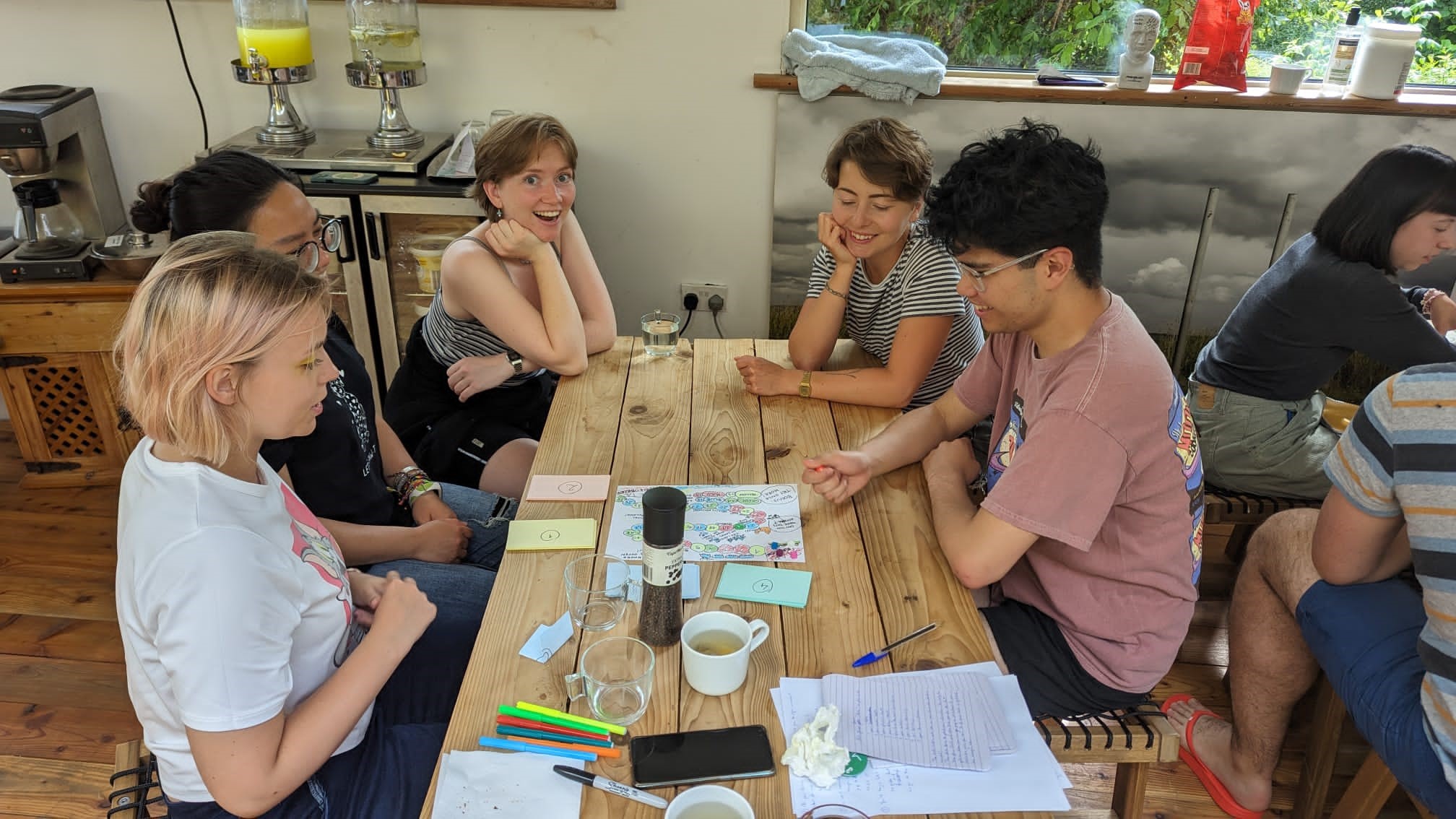
Bio
Mark Soller is an intern with Development Perspectives. He studies Philosophy with Social Policy in Trinity College Dublin, and is heavily involved in student politics.
Recently I took part in an Erasmus+ training course in Sligo with Development Perspectives called Games 4 The Goals. It was a week-long course that explored global citizenship education, development issues and the Sustainable Development Goals, through gamification and games-based learning. The objective of this course was to showcase games as a nonformal learning methodology to youth workers from across the EU.
This was my first time going on such a training course, and it was the first time I was exposed to gamification and games-based learning in depth. Many people still think that games are an unserious tool in learning that serve merely as a bit of craic, a break from the more ‘serious’ learning of formalised learning methodologies. While I knew that games were a way of engaging learners in a more proactive and engaging way, I didn’t how powerful they were until this course.
One of the games we played was called the World Trade Game or the Trading Game used to showcase inequalities in the global economic system. In this game, a group of participants are split into various countries with very different standings in the global economy. Some were placed in high-income countries such as the United States, while some were placed in middle-income or lower-income countries. Participants were not distributed equally, with some high-income countries getting five or six participants, while lower-income nations had as few as two participants. Countries were provided with resources, such as scissors, paper, rules, compasses, and pens, but again these resources were not distributed equally. Higher-income nations had much more scissors and paper, in comparison to lower-income countries which had no scissors for example.
The aim of the game was to cut out certain shapes, with each shape being worth a certain amount of money. These shapes would be brought up to the World Bank, played by a facilitator of the course, in exchange for money. It became quickly evident that higher-income nations had a massive advantage over lower-income nations. They had much more participants and resources in comparison to lower-income countries, who sometimes had to rip the paper up with their hands. The World Bank also treated higher-income countries with much more urgency, allowing them to skip the line and accept imperfect perfect shapes. This was in comparison to lower-income countries who spent a lot of time in queues, only to see their work rejected for not being of a high enough standard.
It was here, that I began to see the power of games as a learning methodology. Participants in lower-income countries quickly became frustrated as they saw others pump out shapes, while they lagged behind and received unfair treatment from the World Bank. This frustration turned to a sense of powerlessness and anger as time went by. Some began to give up at the end, not seeing the point in trying anymore. Participants in higher-income nations, on the other hand, began to feel guilt, as they skipped their fellow participants, and produce much more shapes. This guilt only increased as they watched those in lower-income countries get more and more hopeless.
After the game ended, we had a debrief, where we processed the emotions such as the frustration and guilt experienced. We also discussed how the game relates to the global economic system, as a system biased against those in the Global South, as well as what we would consider to be a much more fairer global system.
To me, the power that this game had was in eliciting strong emotions in exploring the unfair global economic system in a controlled and careful manner. Many times, we in the EU are aware that the global economy is rigged against the Global South. We are aware that there is a massive divide between the regions of the world with wealth and those that do not. We read in the news about the struggling economies of the Global South, and we learn in classrooms about how the global economic system disproportionately treats the Global South. However, it’s been my observation that many times these news stories and lectures, stay as mere news stories and lectures, and we can sometimes forget that a biased global economic system is the lived experiences of billions. Many times, we get bogged down in the news, or the numbers, or academic literature, and forget that these can be situations of anger and hopelessness.
I’m not saying for one moment that because participants played this game they can now completely understand the situation of those in lower-income countries competing in the global market, nor am I saying that the frustration felt in the game comes anywhere close to that felt in such countries. But what I think is the most important lesson of this game is in participants getting a tiny glimpse of what economies in the Global South endure. This game has the power to enable participants to not only engage with the global economic system, but with the human emotions of frustration that arise from its inherent bias.

Games like these are visceral, emotional experiences, that articulate anger and hopelessness in ways that reading or watching sometimes just aren’t capable of giving. Done carefully, and with discussions on the emotions felt, as was done in Sligo, games leave a mark on their participants. Games in global citizenship education done right, articulate the injustices of the world in an immersive way.
Far from being an unserious bunch of craic, games have the power to connect us with the world in ways that not only elicit strong emotions but stay with us. For a brief moment, we got a glimpse into another’s shoes, not as beneficiaries of a rigged economic system, but of those the system exploits.
That is the power of games.

